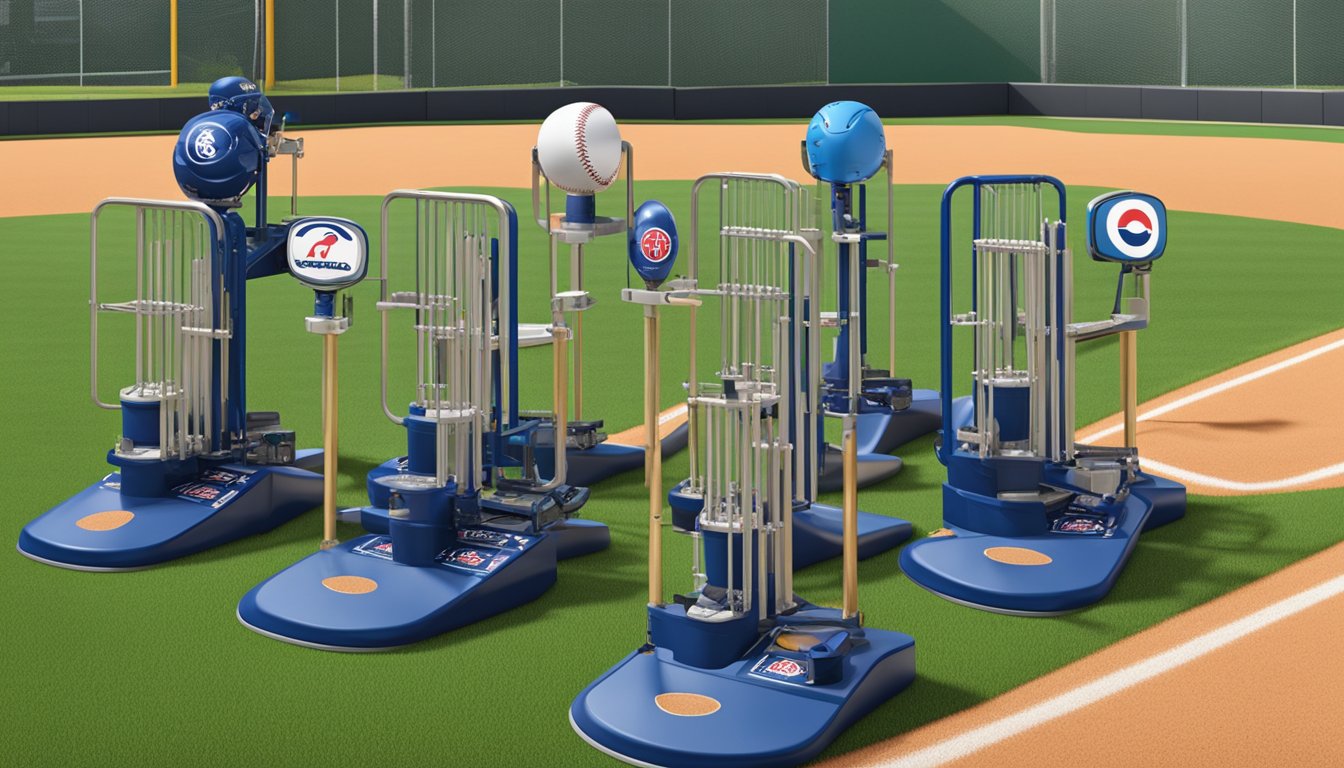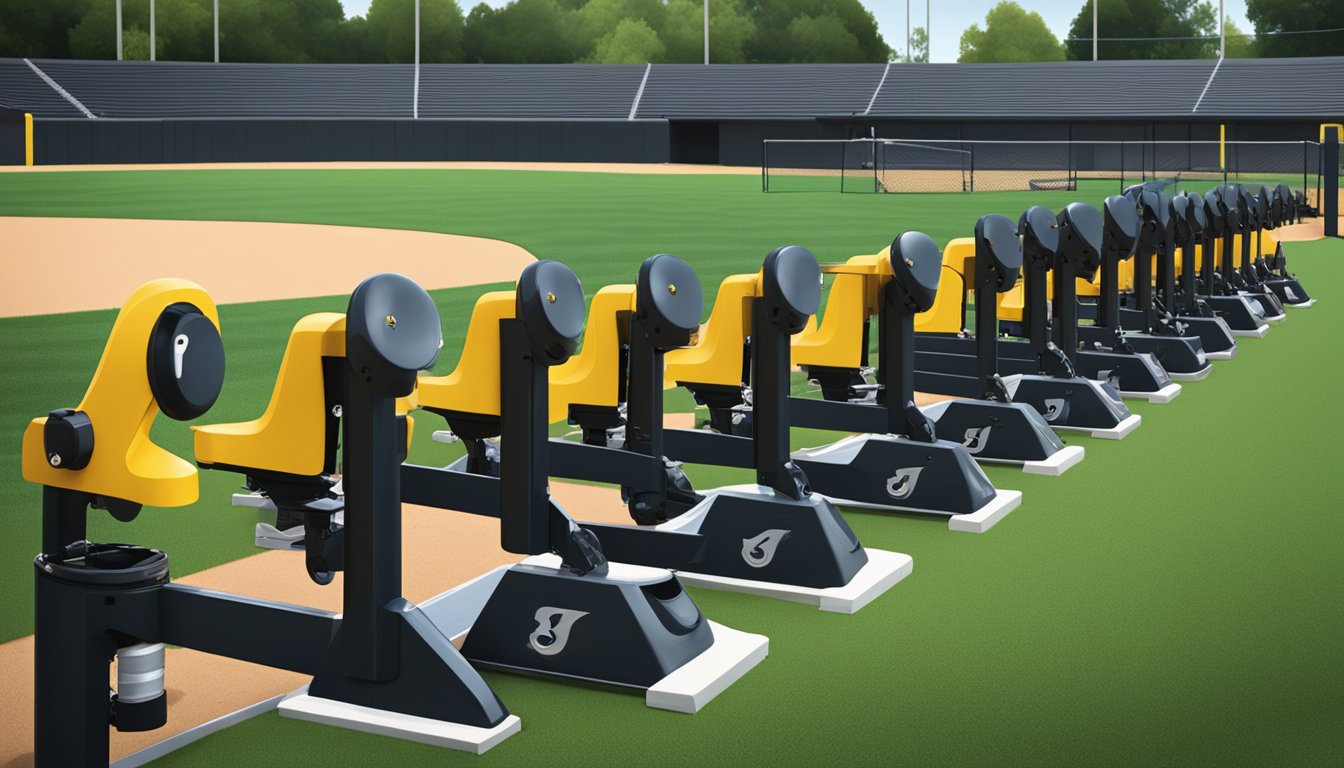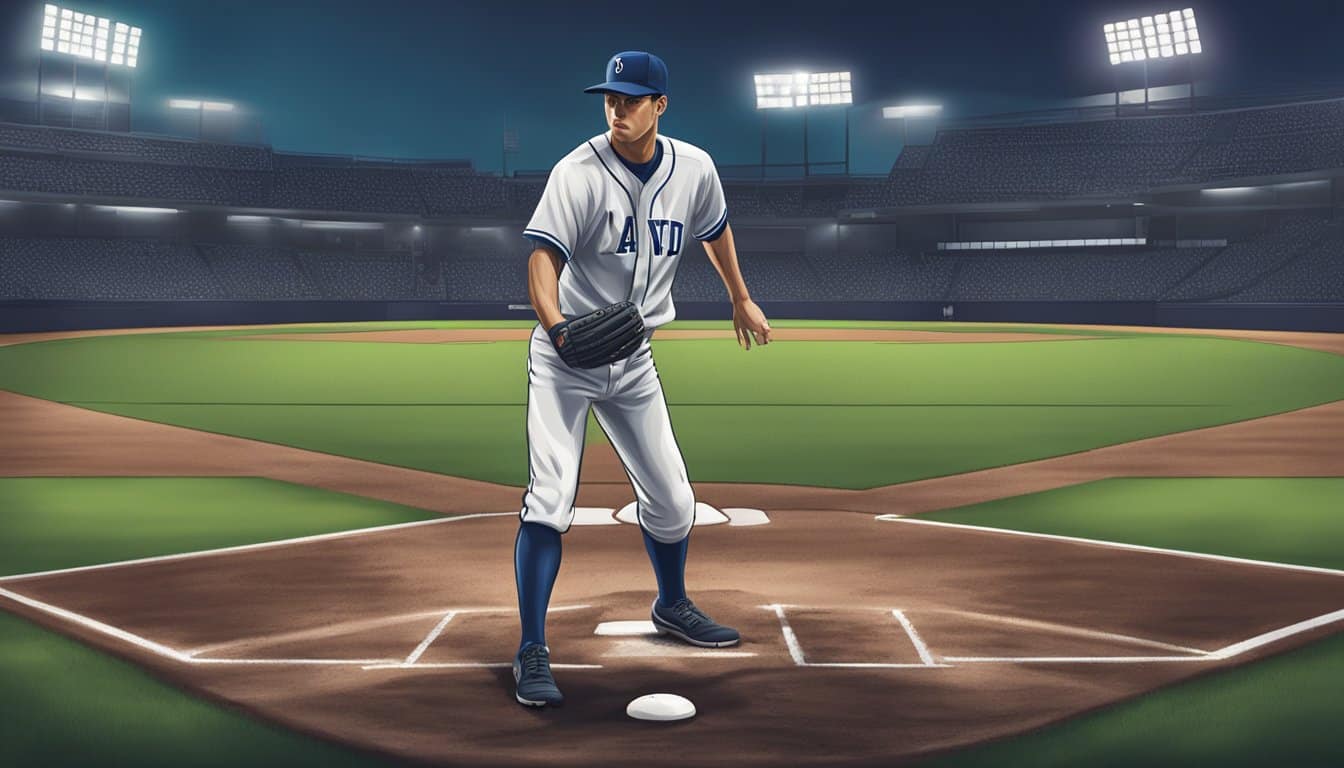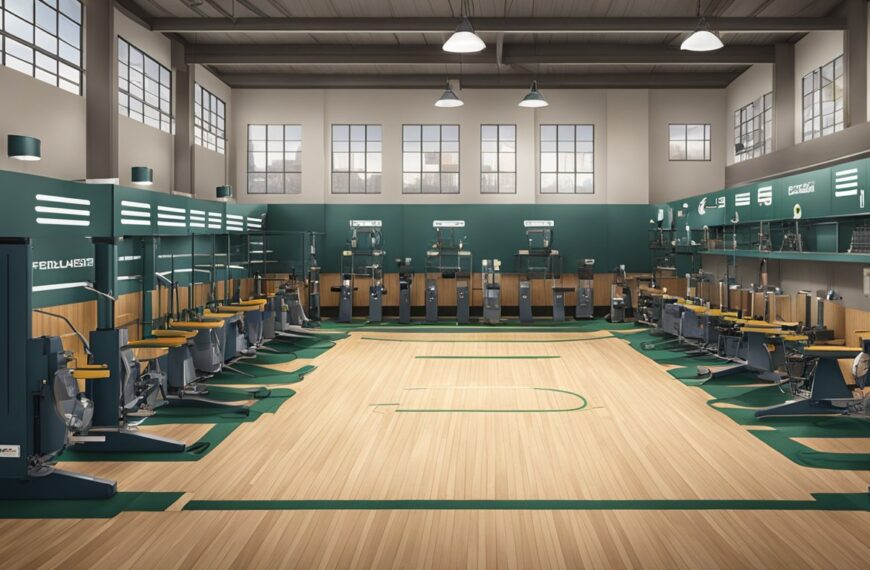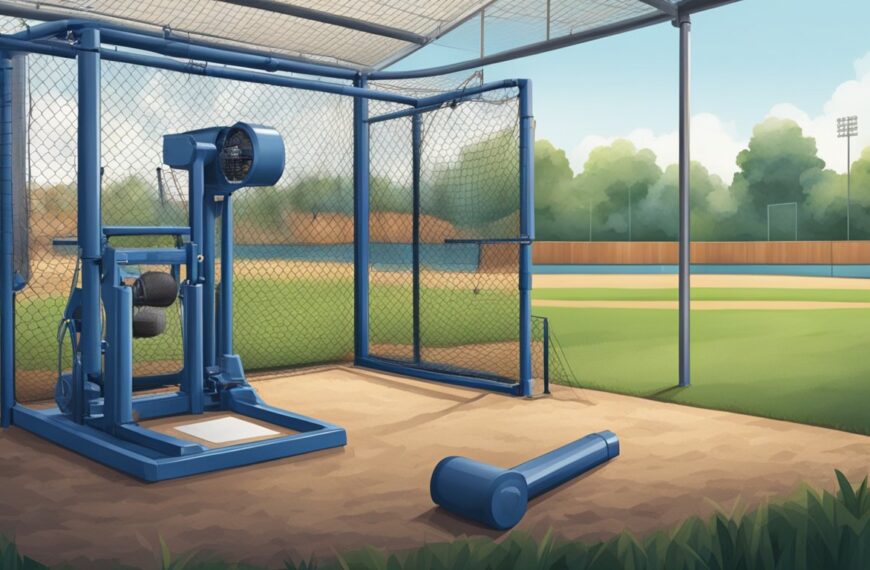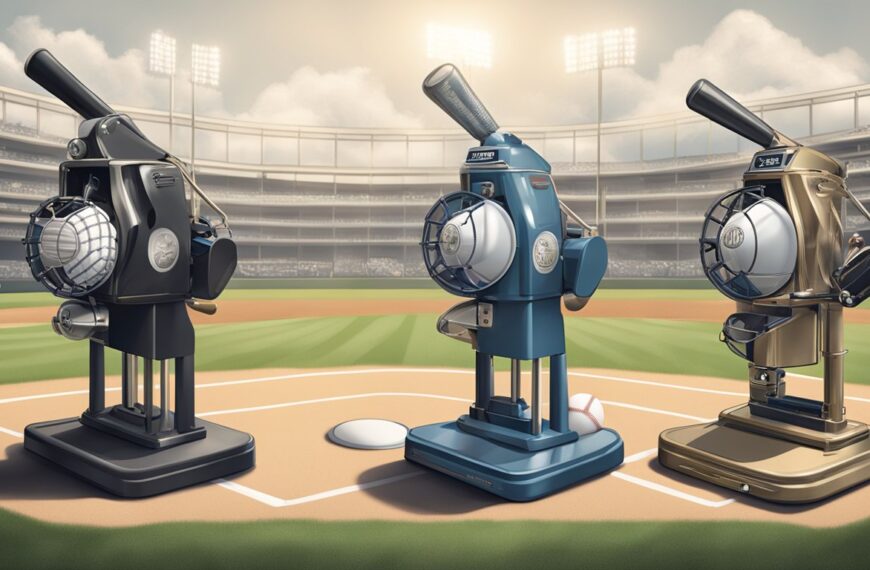Baseball and softball teams are increasingly turning to pitching machines to improve their players’ batting skills. These machines offer consistent, repeatable pitches, allowing players to practice swings without the need for a pitcher. For teams on a budget, it can be challenging to find equipment that balances cost with quality and functionality. Recognizing this need, the market has expanded to include a variety of affordable pitching machines that cater to different team requirements and financial constraints.
Choosing the right pitching machine involves understanding the features that matter most for player development. Teams should consider factors like the machine’s speed range, pitch types, portability, and ease of use. Additionally, durability is crucial, as investing in a machine that can withstand extensive use ensures it lasts longer, providing more value for money.
Given that technology evolves and new models are introduced every year, teams should stay informed about the latest budget-friendly pitching machines available in 2023. It’s not just baseball and softball that benefit from these machines; other sports can use them to enhance their training.
Key Takeaways
- Affordable pitching machines provide extensive practice opportunities without financial strain.
- Key features, including speed, durability, and versatility, should guide the purchase decision.
- The 2023 market offers updated models that cater to various sports beyond baseball and softball.
Understanding Pitching Machines
A pitching machine is a critical tool for batting practice, designed to improve a player’s hitting and hand-eye coordination. They come in various designs, offering different speeds and levels of control to accommodate multiple sports.
Types of Pitching Machines
Pitching machines can be broadly categorized by how they simulate a pitch. There are two primary types:
- Mechanical Pitching Machines: These machines use a motorized arm or wheel(s) to pitch the ball. They can often be adjusted for different speeds and are suitable for different skill levels.
- Compressed Air Machines: Such machines propel the ball using compressed air, offering speed consistency and reducing wear on the balls.
Pitching machines vary in complexity, from simple hand-fed models ideal for younger players to advanced machines that can throw a variety of pitches at varied speeds, crucial for seasoned athletes.
| Type | Speed Control | Design Complexity | Suitable For |
|---|---|---|---|
| Mechanical | Adjustable | Simple to Advanced | All Skill Levels |
| Compressed Air | Consistent Speed | Simple | Training Drills |
Benefits for Teams and Players
Teams and players that incorporate pitching machines into their practice can expect several benefits:
- Skill Development: A pitching machine allows players to focus on their batting technique and hand-eye coordination without the variability of a human pitcher.
- Efficiency: Teams can conduct more effective batting practices by providing a consistent pitch, meaning more repetition in less time.
- Versatility: They can simulate various pitches at different speeds, making them a versatile tool for players across different positions and skill levels.
- Safety: They reduce the risk of injury as players aren’t exposed to erratic pitches during practice sessions.
Every team, from youth leagues to professional, can leverage pitching machines to enhance the overall efficiency and effectiveness of their training regimen.
Features to Consider
When selecting a pitching machine, one must prioritize features that correlate with their team’s needs and skill level. These attributes include adjustability settings, the compatibility with various ball types, machine portability, and build quality.
Adjustability and Speed Settings
The adjustability of a pitching machine is crucial for teams to practice various pitches. Machines should offer a range of speed settings to simulate different pitch velocities. The capability to adjust angles and speeds enables players to practice hitting fastballs, curveballs, sliders, and changeups.
Ball Types and Pitch Variety
A versatile pitching machine should handle different ball types, including dimpled, regulation, or softer practice balls. For pitch variety, the machine needs settings for pitching fastballs, curveballs, sliders, and changeup balls to offer a comprehensive batting experience.
Portability and Setup
Teams often require a portable pitching machine for practice at various locations. Key factors include being lightweight and easy to assemble. A machine that quickly disassembles fits into a carrying case, or has wheels can be exceptionally beneficial for teams on the move.
Durability and Construction
Durability is paramount for a pitching machine’s longevity and performance reliability. Sturdy construction using durable materials like steel ensures the machine withstands frequent use and various weather conditions. High-quality components are essential for the machine’s maintenance and consistent operation over time.
Budget-Friendly Picks for 2023
In selecting affordable pitching machines for 2023, consider both functionality and price point. Focusing on budget-friendly options, here are category-specific recommendations, each offering value under $1,000.
Top Picks for Baseball
- Louisville Slugger Blue Flame Pitching Machine: At a price just shy of $200, this machine is not only affordable but also versatile, capable of throwing balls at speeds ranging from 18 to 45 mph.
- Franklin Sports MLB Electronic Baseball Pitching Machine: Ideal for kids and casual practice, available around $50, with adjustable pitching angles and a six-second pitch interval.
Best Value Softball Machines
- HEATER Sports PowerAlley Softball Pitching Machine: Priced around $200, it can pitch softballs at speeds up to 60 mph and offers adjustable pitch height.
- JUGS Lite-Flite Machine for Baseball and Softball: While slightly above the budget-friendly range at approximately $450, it provides durability and an ability to throw Lite-Flite and Bulldog baseballs and softballs.
Youth and Beginner-Friendly Selections
- Franklin Sports Kids Pitching Machine: Offers a fun experience for as low as $30, it pitches a plastic ball every seven seconds and includes six balls with the set.
- Zooka: ZS740 Pitching Machine with Tall Tripod: For around $750, this machine is portable and user-friendly, making it perfect for youth players looking to improve their skills.
Mid-Tier Machines for Advanced Players
- Heater Sports Deuce 95 MPH Curveball Machine with Auto Ballfeeder: At just under $1,000, it caters to players looking for a machine that can also pitch curveballs.
- ATEC M2 Offensive Pitching Machine: This comes in slightly higher in price but remains accessible for serious players and teams in need of a more advanced training tool.
Comparing Popular Models
In evaluating affordable pitching machines, it’s important to consider a range of factors including cost, durability, and functionality. This comparison will closely examine specific models from Louisville Slugger, Jugs, Heater Sports, Hack Attack, and Blue Flame to determine their suitability for various teams and skill levels.
Louisville Slugger Series Analysis
Louisville Slugger pitching machines are well-regarded for their quality and affordability. The Blue Flame is a manual model, boasting ease of use and versatility, capable of throwing balls at speeds ranging from 18 to 45 mph. It’s particularly favored by youth leagues and for practicing a variety of pitches without breaking the bank.
The Jugs BP1 and BP3
Among the best pitching machines for consistency and versatility, the Jugs BP1 and BP3 models stand out. The BP1 offers a range of 15 to 70 mph, suitable for all ages, while the BP3 can simulate left and right-handed pitches, which is a significant advantage for players facing various pitching styles. Both are distinguished by their durability and ease of use.
Reviewing Heater Sports Options
Heater Sports pitching machines are notable for their ability to cater to both amateur and professional needs. They offer a variety of machines, including affordable options that can pitch balls up to 52 mph, providing a good range of speed for effective practice sessions without a substantial financial commitment.
Hack Attack and Blue Flame
The Hack Attack range is recognized for the precision and speed variation it offers, with some models reaching up to 100 mph. This makes them well-suited for serious players aiming to improve their batting against high-velocity pitches. On the other hand, the Blue Flame remains a cost-effective solution for younger players and teams with limited resources, emphasizing control over raw power.
Practical Accessories
When accessorizing pitching machines, teams should consider investments that enhance functionality, safety, and longevity. Below are key add-ons that fulfill these criteria.
Choosing the Right Ball Feeder
An automatic ball feeder is essential for solo practice sessions. It should be compatible with a variety of ball sizes and types. Look for feeders with a control panel and digital display to allow easy adjustments for interval timing.
- Compatibility: Ensure the feeder fits your machine and accommodates different ball types.
- Capacity: Opt for a high-capacity feeder to minimize reloading times.
- Interval Control: A feeder with adjustable time settings increases practice efficiency.
Safety and Protection Add-Ons
Safety accessories are non-negotiable. Netting or cages should be utilized to protect against misfired balls. Furthermore, machines should have clear safety labels and, if possible, a remote control for immediate shut-off.
- Protective Gear: Encourage the use of helmets and padding for batters.
- Remote Controls: Consider systems with remote operability for quick and safe shutdowns.
Maintenance Kits and Replacement Parts
Regular maintenance ensures a pitching machine’s longevity and performance. Basic kits should include lubricants and tools for routine adjustments, as well as common replacement parts such as:
| Common Parts | Description |
|---|---|
| Motor Brushes | Keep motors running smoothly. |
| Pitching Wheels | Replace worn wheels for consistent pitches. |
| Bearings and Bushings | Essential for smooth machine operations. |
Additionally, teams should keep spare fuses and control panel components on hand to quickly address electrical issues.
Maximizing Player Development
Developing a player’s skill set comprehensively is crucial for any team’s success. By utilizing affordable pitching machines, teams can enhance both the hitting and fielding abilities of players efficiently.
Training Tips for Hitters
To foster batting skills, coaches should focus on a variety of pitches. A pitching machine set to deliver various speeds and breaking balls ensures that hitters can adapt to different pitch types.
- Hand-Eye Coordination: Regular batting practice with a pitching machine improves this critical skill. Every session should include a range of speeds and trajectories to challenge the hitter.
- Breaking Balls: Practicing against curveballs and sliders sharpens a batter’s eye and enhances their ability to make contact.
Integrating Fielding Drills
Pitching machines are not only for hitters; they can simulate different types of hits for fielders as well.
- Grounders: Position the machine to hit ground balls at different angles to train infielders.
- Fly Balls: Adjust the machine’s settings to help outfielders practice tracking and catching high balls.
Setting the machine to randomize the type of ball hit can keep fielders alert and improve their game-readiness.
Developing Pitch Recognition
The more a player faces live pitching, the greater their ability to recognize pitch types and locations.
- Use the pitching machine to throw a series of pitches, asking players to call out the type and anticipated location.
- This exercise not only improves recognition but also helps in decision-making about when to swing.
Making the Investment Last
Investing in an affordable pitching machine can bring lasting value to a team if the equipment is maintained properly and thoughtfully upgraded.
Maintenance and Care
Proper maintenance ensures that a pitching machine remains durable and continues to perform at a high-quality standard. Owners should implement a routine checklist:
- Weekly Checks: Examine for loose bolts and wear on moving parts.
- Monthly Inspection: Clean pitching wheels and check the motor operation.
- Seasonal Servicing: Lubricate pivot points and inspect for rust or corrosion.
Adhering to these care steps will extend the life of the machine and preserve its value.
Upgrades and Longevity
Upgrading parts over time can significantly increase a pitching machine’s longevity, negating the cost of purchasing new equipment. Teams should consider the following:
- Replacement Parts: Keep an inventory of common replacement parts such as pitching wheels and motors.
- Technology Enhancements: Integrate new software or hardware that improves accuracy or offers new pitching styles.
By proactively managing upgrades, teams can ensure their affordable pitching machines continue to meet evolving needs.
Pitching Machines beyond Baseball and Softball
Pitching machines have evolved to serve a variety of sports, offering valuable training tools far beyond their initial design for baseball and softball.
Adapting for Other Sports
Pitching machines, traditionally associated with baseball and softball, have been adapted to complement training in other sports. For example, two-wheel pitching machines can serve athletes in sports like golf, where precision and consistency in ball release are crucial for driving and chipping practice.
In golf, pitching machines are customized to handle golf balls and provide consistent delivery, allowing golfers to practice their swing without a pitcher. This adaptation is particularly useful for driving ranges looking to offer more engaging practice sessions. Consistency in ball placement and speed helps golfers perfect their technique, much like baseball and softball players use pitching machines to improve their hitting.
- Baseball/Softball-related Pitching Machines:
- Fastpitch: Tailored for simulating the speed and style of competitive fastpitch softball.
- Slowpitch: Engineered to recreate the arc and pace of slowpitch softball pitches.
For players and coaches in fastpitch and slowpitch softball, pitching machines offer adjustable settings that can mimic the style and speed of pitches within those specific games. This ability to tailor the machine’s output allows for a more targeted training experience, thereby improving the player’s skill in handling various types of pitches.
Frequently Asked Questions
In this section, various concerns regarding purchasing budget-friendly pitching machines are addressed, providing clarity on price, functionality, and application.
What factors should be considered when choosing an affordable pitching machine?
When selecting an economical pitching machine, buyers should evaluate the machine’s speed settings, ball compatibility, and ease of portability. It’s crucial to ensure the machine meets the team’s or individual’s training needs while staying within budget constraints.
Are there significant differences between a softball and a baseball pitching machine in terms of price?
The cost of softball pitching machines versus baseball pitching machines can vary, with some models designed specifically for one type of ball. Cross-compatible machines are typically more expensive, but dedicated machines for either sport may not differ significantly in price.
How do used pitching machines compare to new ones in terms of cost-effectiveness?
Used pitching machines often present significant savings compared to new models. However, one must consider potential wear and the absence of a warranty, which could affect long-term value and reliability.
Can cheaper pitching machines be effectively used for professional team practices?
Less expensive pitching machines can be effective for professional teams, especially for fundamental drills. While they may lack advanced features, with proper use, they can provide consistent pitches, allowing players to practice their batting skills.
What are the pros and cons of purchasing a budget-friendly pitching machine for home use?
The main advantage of a budget-friendly pitching machine for home use is its affordability, making practice accessible. However, they may offer fewer features and possess a less robust build, potentially impacting their longevity and the variety of training they can provide.
Is it possible to find high-quality pitching machines that are both affordable and durable?
Quality and affordable pitching machines exist that offer a balance between performance and durability. Shoppers should look for machines with positive reviews and a good track record, ensuring that lower cost doesn’t compromise the product’s lifespan or effectiveness.

